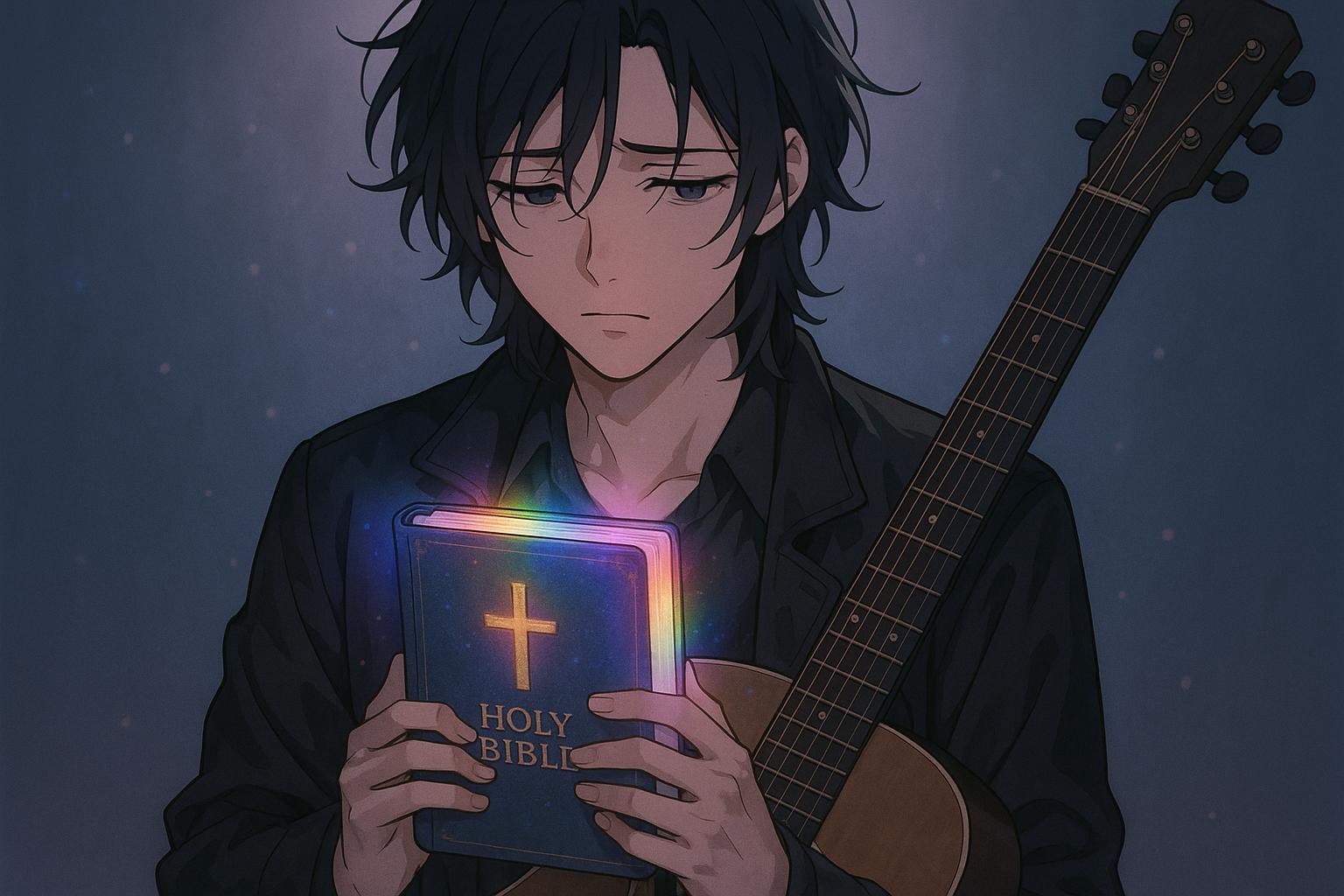Sufjan Stevens, an acclaimed artist known for his introspective and emotionally charged music, has ignited controversy following bold remarks about the Bible, which some fans have branded as 'blasphemous.' In a recent interview with Vulture, Stevens asserted that the Bible is “inherently sexual” and described it as “very gay,” drawing criticism from certain corners of his fanbase who feel that his comments show a level of disrespect towards the sacred text.
The singer, who publicly came out as gay in October 2023, dedicated his latest album, Javelin, to his late partner, Evans Richardson, who passed away in April of the same year. This dedication marked a poignant moment in Stevens' life and career, reflecting a deeper emotional landscape shaped by personal grief and the exploration of love. He described Richardson as “an absolute gem of a person, full of life, love, laughter, curiosity, integrity, and joy”—a testament to their meaningful bond which has undeniably influenced his artistic expression.
In discussing the erotic nature of religious texts, Stevens cited the sensuality embedded in religious sacraments. He provocatively likened participation in the Eucharist—where believers partake in bread and wine symbolising Christ’s body and blood—to the ultimate 'erotic experience.' Such statements have resonated deeply within certain groups, leading to backlash on social media, where fans have expressed disappointment and anger over what they perceive as an affront to traditional religious values. Comments like “Sad to see my favorite artist say something with this level of disrespect” encapsulate a growing sentiment amongst detractors who feel his words undermine the sacredness associated with religious beliefs.
Stevens, who identifies as a Christian, has long navigated the relationship between his faith and his art. His previous works have often touched upon themes of spirituality, with Stevens arguing that a “Christian Nation” is fundamentally heretical, warning against blending religion with statecraft. He has consistently urged a return to the core tenets of love and humility that lie within the teachings of Christ, distancing himself from dogmatic interpretations that can distort these messages.
This recent fallout appears to coincide with a broader cultural shift wherein artists feel empowered to express their identities more candidly. Reviews of Javelin have noted the album’s profound exploration of loss, love, and identity, spotlighting Stevens' openness about his sexuality as a pivotal element of his current artistic journey. Critics have acknowledged that his public coming out and the vulnerability displayed in his music mark a significant evolution in his career, adding depth and nuance to narratives that were once more reserved.
While some fans have expressed their intent to boycott his music, others remain supportive, understanding his remarks as part of a larger dialogue about faith, sexuality, and personal experience. In an era where discussions around identity and spirituality are increasingly intertwined, Stevens' comments challenge listeners to reconsider preconceived notions about both the sacred and the sexual.
As the discourse around Stevens' statements unfolds, it highlights not only the complexities of faith and identity but also the potential for pushback against artists who choose to venture into controversial territories. Amidst the uproar, Stevens seems poised to carve out a space for dialogue, challenging both his supporters and detractors to engage with the often contentious intersection of religion and sexuality.
Reference Map:
- Paragraph 1: [1]
- Paragraph 2: [2], [3]
- Paragraph 3: [1]
- Paragraph 4: [4]
- Paragraph 5: [5], [6], [7]
- Paragraph 6: [1], [4]
Source: Noah Wire Services
